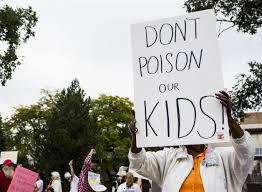News: APsaA Calls on Governor Snyder to Apologize, Lead By Example
AMERICAN PSYCHOANALYTIC GROUP CALLS ON GOVERNOR SNYDER TO APOLOGIZE TO FLINT RESIDENTS, LEAD BY EXAMPLE
New York, NY – March 8, 2016 – Mental Health experts from the American Psychoanalytic Association are calling on Governor Rick Snyder to lead by example and address the social and emotional damage caused to citizens by the Flint water crisis.
“The Flint water crisis is a significant breach in public trust and is just one of many high-profile instances in American cities in which underprivileged Americans have been unfairly treated or neglected,” said Mark Smaller, Ph.D, (Douglas, MI) president of the association, who grew up in Michigan. “Governor Snyder has both the opportunity and responsibility to lead the discussion and find solutions to the Flint problem. Doing so would begin a national conversation about inequality and race, providing a salve for our nation.”
The organization has outlined three steps to repair the psychological trauma:
1. There must be a clear and sincere apology to the citizens of Flint from the government of Michigan and especially by Governor Snyder. The apology must acknowledge the trauma caused by the lead poisoning, the slow and indifferent response to the citizen’s alarm, and the shattered trust and betrayal that resulted from neglecting the welfare of Flint’s citizens.
“The healing process begins with an apology,” said Smaller. “Governor Snyder must set a good and just example of how government can react and respond to the needs of citizens, particularly socioeconomically disadvantaged people and minorities.”
2. In addition to testing Flint citizens for lead poisoning, it is essential to develop early intervention programs to help preschool and elementary school aged children cope with the psychological damage caused by neglect and betrayal. Early mental and emotional development experiences have profound impact and lifelong effects on a child’s life. Just as infants and children are significantly more susceptible to the harmful neurological effects of lead poisoning, they are more vulnerable to the psychological damage caused by neglect and betrayal.
According to APsaA member Dr. Gilbert Kliman (San Francisco, CA), “A betrayal such as the neglect of Flint citizen’s safety is a particularly serious trauma. There’s much evidence that betrayal is a more serious trauma than that which is caused by a natural catastrophe, such as an earthquake, because ultimately, the victims realize that the people involved could have protected them but failed to, or worse, who may have even had malevolent intent.”
3. Michigan leaders must think long-term for psychological recovery to be effective. After a traumatic experience such as what has occurred in Flint, there are no quick fixes. The emotional ruptures must be repaired, and often this takes time. Long-term intervention is to be expected, particularly with individuals who are already at-risk due to socio-economical and racial disparities.
“People, especially children, living in a context where caretakers purposefully, consciously or unconsciously, devalued their very existence are less likely to develop a healthy sense of self-worth. And this may take a lot of time, energy and patience to repair,” said Dr. Marie Rudden, APsaA member based in West Stockbridge, MA.
About The American Psychoanalytic Association:
The American Psychoanalytic Association is a professional organization of psychoanalysts with approximately 3,300 members. The Association is comprised of psychiatrists, psychologists, social workers, educators, researchers and students who have an interest in psychoanalysis and psychoanalytic therapy. Visit apsa.org for more information.
###
Media Contact:
Wylie Tene
American Psychoanalytic Association
Director of Public Affairs
212-752-0450 ext. 29




